Departments
We Are Superspeciality Hospital With Various Departments.
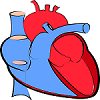
Cardiology
Cardiology is a branch of medicine that deals with the disorders of the heart as well as some parts of the circulatory system. It includes medical diagnosis and treatment of congenital heart defects, coronary artery disease, heart failure, valvular heart disease and electrophysiology.

Haematology
Haematology is the specialty responsible for the diagnosis and management of a wide range of benign and malignant disorders of the red and white blood cells, platelets and the coagulation system in adults and children. Haematologists care directly for patients on hospital wards and out patient clinics.

Paediatrician
Paediatrics is the branch of medicine that involves the medical care of infants, children, and adolescents. The American Academy of Pediatrics recommends people seek pediatric care through the age of 21. In the United Kingdom, paediatrics covers patients until age 18.
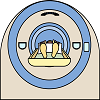
Radiology
Radiology is a branch of medicine that uses imaging technology to diagnose and treat disease. Radiology may be divided into two different areas, diagnostic radiology and interventional radiology. Doctors who specialize in radiology are called radiologists.

Neurology
Neurology is a branch of medicine dealing with disorders of the nervous system. Neurology deals with the diagnosis and treatment of all categories of conditions and disease involving the central and peripheral nervous systems (and their subdivisions, the autonomic and somatic nervous systems), including their coverings, blood vessels, and all effector tissue, such as muscle.
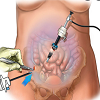
Laparoscopy
Laparoscopic surgery, also called minimally invasive surgery (MIS), bandaid surgery, or keyhole surgery, is a modern surgical technique. There are a number of advantages to the patient with laparoscopic surgery versus an exploratory laparotomy. These include reduced pain due to smaller incisions, reduced hemorrhaging, and shorter recovery time.
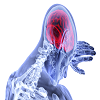
Nephrology
Nephrology is a specialty of adult internal medicine and pediatric medicine that concerns the study of the kidneys, specifically normal kidney function (renal physiology) and kidney disease (renal pathophysiology), the preservation of kidney health, and the treatment of kidney disease, from diet and medication to renal replacement therapy (dialysis and kidney transplantation).
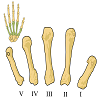
Orthopedics
Orthopaedic surgery or orthopaedics, is the branch of surgery concerned with conditions involving the musculoskeletal system. Orthopaedic surgeons use both surgical and nonsurgical means to treat musculoskeletal trauma, spine diseases, sports injuries, degenerative diseases, infections, tumors, and congenital disorders.

Urology
Urology, also known as genitourinary surgery, is the branch of medicine that focuses on surgical and medical diseases of the male and female urinary-tract system and the male reproductive organs. Organs under the domain of urology include the kidneys, adrenal glands, ureters, urinary bladder, urethra, and the male reproductive organs (testes, epididymis, vas deferens, seminal vesicles, prostate, and penis).
